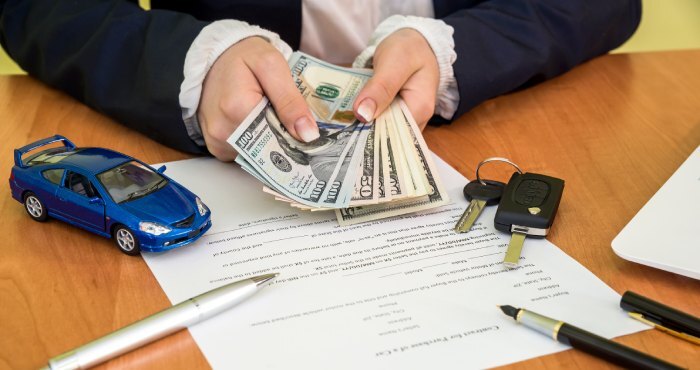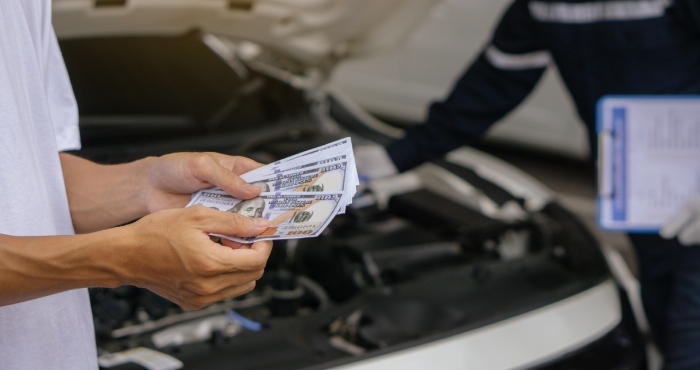Consumers anticipate that their vehicles will perform as advertised when they buy or lease them. Unfortunately, if a car proves to be defective—commonly referred to as a “lemon,” with significant flaws impacting its safety, usability, or worth—California’s Lemon Law offers solutions like refunds or replacements. A particularly intricate element of these situations is managing loan balance concerns. For those who financed their vehicle, it’s essential to comprehend how loan responsibilities relate to Lemon Law resolutions.
Understanding Loan Balance Issues in Lemon Law Cases
One significant hurdle in California Lemon Law cases involves addressing remaining loan balances when a manufacturer repurchases a faulty vehicle. Unlike a simple cash refund, financing a car adds layers of complexity due to the involvement of lenders, interest rates, and vehicle depreciation.
Several factors contribute to loan balance challenges:
- Discrepancies in Loan Payoff: The outstanding loan amount may not match the buyback price established under the Lemon Law.
- Negative Equity: If you transferred debt from an old car loan into your new loan, this can complicate the process of settling payments.
- Interest and Additional Charges: The Lemon Law might not cover all accrued interest and fees, potentially leaving consumers with lingering financial responsibilities.
- Calculating Manufacturer Refunds: When reimbursing the consumer, the manufacturer must consider the vehicle’s original price, payments made, interest accrued, and registration fees. Disagreements can often arise regarding these calculations.
Challenges Consumers Face with Loan Balances
Consumers in Ocean Beach, California, often face challenges with loan balances in Lemon Law cases, including negative equity, high-interest payments, and unresolved lender disputes that complicate the buyback process.
1. Outstanding Loan vs. Buyback Offer
A frequent challenge encountered in Lemon Law buybacks arises when the amount the consumer owes on their vehicle exceeds the refund the manufacturer is prepared to offer. This scenario often happens under the following circumstances:
- The vehicle has lost considerable value.
- The consumer secured a long-term loan with elevated interest rates.
- Additional expenses, like accessories or aftermarket items, were factored into the financing deal.
2. Negative Equity and Rollover Loans
Certain purchasers exchange a vehicle that still has an outstanding loan, transferring the remaining balance into a new auto loan. If the newly acquired car proves to be defective, the compensation received might fall short of fully covering the existing loan, as Lemon Law settlements typically exclude any previously owed debts.
3. Lender Involvement in the Buyback Process
Since lenders possess the lien on vehicles that have been financed, manufacturers are unable to provide direct refunds without settling the outstanding loan amount. The lender needs to be compensated first, which can delay the buyback procedure and result in extra interest charges.
4. Interest and Other Costs
Although the California Lemon Law requires that consumers be reimbursed for the purchase price of their vehicle, it often fails to account for the total interest accumulated during the loan period. As a result, buyers may find themselves in a frustrating situation where they still have an outstanding balance after the vehicle has been repurchased.
5. Manufacturer Disputes Over Refund Calculations
Producers might challenge the determination of the refund sum, contending that specific charges or expenses ought to be excluded. This disagreement can prolong the resolution process and create uncertainty for consumers regarding the extent of their loan coverage.
Expert Guidance: Protecting Your Rights in Lemon Law Cases
Due to the intricate nature of loan balance concerns in California Lemon Law cases, it’s essential to seek guidance from a San Diego Lemon Law lawyer for expert advice. Here’s how legal experts can assist:
1. Evaluating Your Loan and Lemon Law Qualification
A knowledgeable California Lemon Law lawyer can analyze your loan documents and the specifics of your vehicle purchase to ascertain the amount of your balance eligible for reimbursement. They will verify that the manufacturer’s buyback proposal complies with legal standards.
2. Engaging in Negotiations with Lenders and Manufacturers
Lawyers can facilitate negotiations with both the lender and the manufacturer to guarantee a seamless buyback experience, preventing the consumer from facing any unforeseen financial liabilities.
3. Guaranteeing Accurate Refund Assessments
Legal experts assist in figuring out:
- The precise amount to be refunded, taking into account any permissible deductions.
- Reimbursement for additional expenses (like rental vehicles or repair fees).
- Whether the manufacturer is wrongly subtracting expenses.
Safeguarding Against Inadequate Settlement Offers
At times, manufacturers may offer settlements that do not adequately reimburse consumers for their losses. An experienced attorney can meticulously examine these proposals to pinpoint any unjust conditions. By contesting insufficient settlements, a lawyer helps ensure that the consumer secures the highest level of compensation possible.
Addressing Negative Equity Challenges
Negative equity can make Lemon Law claims more complex, but an attorney can assist in managing these challenges effectively. They might negotiate a different arrangement for the remaining loan balance or advocate for extra compensation. With legal knowledge, consumers can seek improved financial options and minimize potential losses.
Steps to Take If You Have a Loan on a Lemon Vehicle
If you believe your car may be a lemon and you still owe money on it, take these steps to safeguard your rights:
- Keep Thorough Documentation: Gather and retain all records related to repairs, loan contracts, payment history, and any correspondence with both the dealer and the manufacturer.
- Seek Advice from a Lemon Law Lawyer: A qualified attorney can evaluate your situation and provide guidance through the legal process.
- Notify Your Lender: It’s important to inform your lender about the circumstances so you can understand your responsibilities and how this may affect your credit score.
- Familiarize Yourself with Refund Calculations: Make sure you comprehend how your refund will be determined, including any deductions that may apply.
- Explore Legal Options if Needed: If the manufacturer challenges your claim, you might need to pursue arbitration or litigation to obtain just compensation.
Loan balance issues in California Lemon Law cases can complicate the buyback process, leaving consumers in San Diego uncertain about their financial obligations. Whether facing negative equity, outstanding loan balances, or interest discrepancies, it is essential to understand your rights and seek professional legal guidance. By working with an experienced California Lemon Law attorney in San Diego, consumers can effectively navigate these challenges, secure the compensation they deserve, and avoid unnecessary financial losses.





